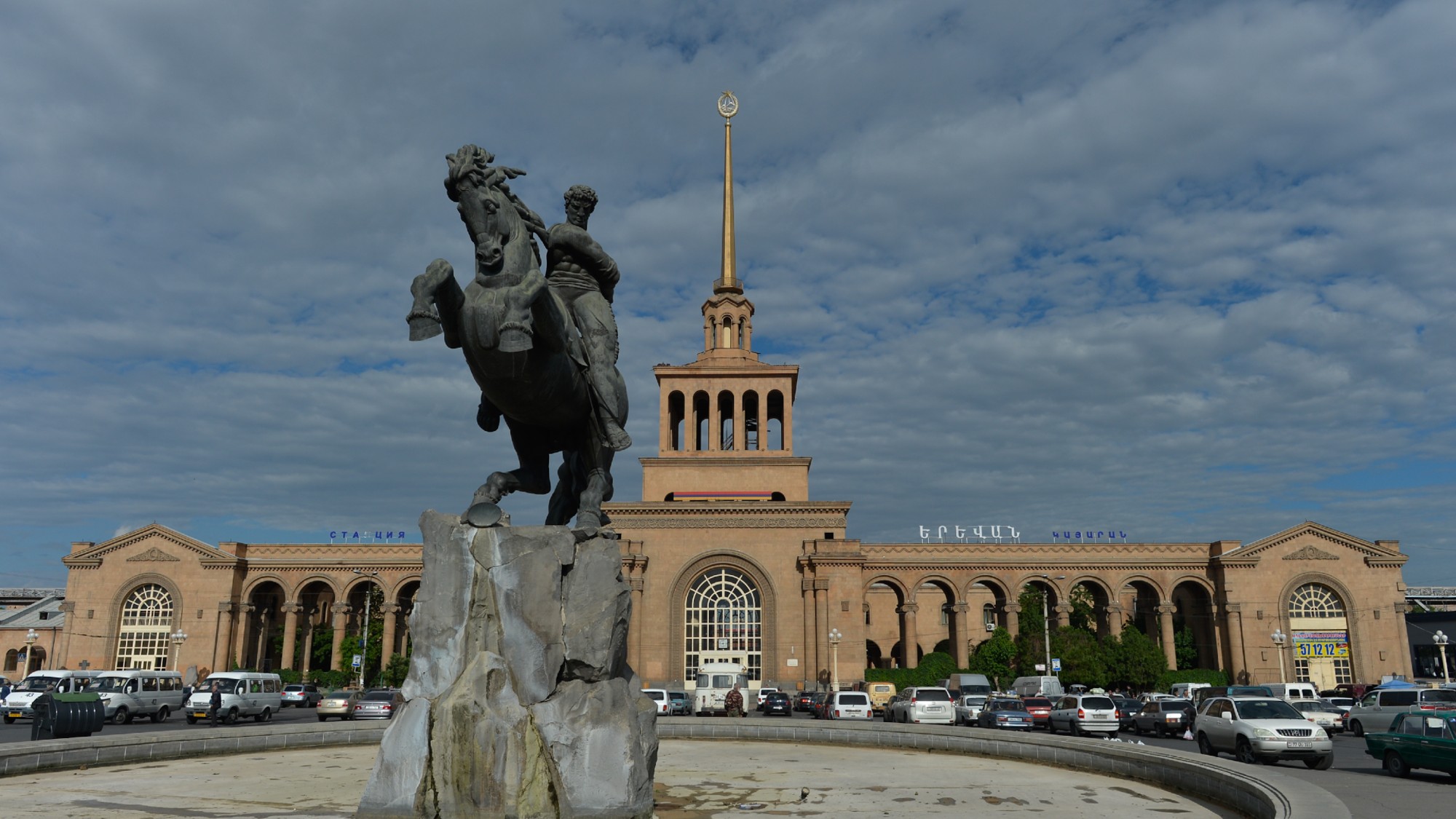'Politicians now see the nanny state as a necessity rather than a nice-to-have'
Opinion, comment and editorials of the day

A free daily email with the biggest news stories of the day – and the best features from TheWeek.com
You are now subscribed
Your newsletter sign-up was successful
The rise of Britain's new nanny state
Bagehot columnist in The Economist
Today's politicians "see the nanny state as a necessity, rather than a nice-to-have", according to The Economist's Bagehot column. And while it used to be "paternalistic, protecting people from themselves", the aim now is "protecting the state from the people". Government will "intrude more into the lives of voters, in a bid to keep a lid on the cost of the services they demand". In "the new nanny state", with proposed bans on cigarettes and junk-food adverts, "everyone is a public servant".
The Week
Escape your echo chamber. Get the facts behind the news, plus analysis from multiple perspectives.

Sign up for The Week's Free Newsletters
From our morning news briefing to a weekly Good News Newsletter, get the best of The Week delivered directly to your inbox.
From our morning news briefing to a weekly Good News Newsletter, get the best of The Week delivered directly to your inbox.
The hateful ideology behind pro-Hamas demonstrations
The Telegraph editorial board
"The motives behind the murderous Hamas incursion into Israel are hard to fathom beyond a desire to kill Jews," says The Telegraph's leader article. Hamas has "no interest in a two-state solution". The militant group "want Israel destroyed and do not recognise its right to exist", and "pro-Palestinian activists in the West who are backing Hamas are in reality subscribing to a profoundly hateful anti-Semitic ideology".
Crypto was never more than a solution in search of a problem
Adam Lashinsky in The Washington Post
A free daily email with the biggest news stories of the day – and the best features from TheWeek.com
Crypto was supposed to represent "a paradigmatic shift in the global finance industry", writes Adam Lashinsky for The Washington Post. Backers "dreamed of a new method of stored value, like gold", but digital currencies have "no inherent value" and are not "backed by the full faith and credit of a credible government". These limitations are recognised by "non-dreamers", but the fraud trial of "crypto kingpin" Sam Bankman-Fried "is a painful reminder of how easy it is to run the big con on a lot of folks".
Spain's high-speed trains aren't just efficient, they have transformed people's lives
María Ramírez for The Guardian
Over the past few decades, Spain has built "the longest high-speed rail network in Europe", says María Ramírez in The Guardian, and "the second longest in the world, now spanning approximately 2,500 miles". Meanwhile, Britain has managed 68 miles with the HS2 "high-speed fiasco". Spain's achievement "can be traced directly to a combination of unusual political consensus and EU funding". And while "many Spaniards don't realise" the extent of our railway success, they would "find it difficult to imagine living without" it.
-
 5 cinematic cartoons about Bezos betting big on 'Melania'
5 cinematic cartoons about Bezos betting big on 'Melania'Cartoons Artists take on a girlboss, a fetching newspaper, and more
-
 The fall of the generals: China’s military purge
The fall of the generals: China’s military purgeIn the Spotlight Xi Jinping’s extraordinary removal of senior general proves that no-one is safe from anti-corruption drive that has investigated millions
-
 Why the Gorton and Denton by-election is a ‘Frankenstein’s monster’
Why the Gorton and Denton by-election is a ‘Frankenstein’s monster’Talking Point Reform and the Greens have the Labour seat in their sights, but the constituency’s complex demographics make messaging tricky
-
 Why the Gorton and Denton by-election is a ‘Frankenstein’s monster’
Why the Gorton and Denton by-election is a ‘Frankenstein’s monster’Talking Point Reform and the Greens have the Labour seat in their sights, but the constituency’s complex demographics make messaging tricky
-
 ‘The West needs people’
‘The West needs people’Instant Opinion Opinion, comment and editorials of the day
-
 ‘The censorious effect is the same, even if deployed covertly’
‘The censorious effect is the same, even if deployed covertly’Instant Opinion Opinion, comment and editorials of the day
-
 Is the Gaza peace plan destined to fail?
Is the Gaza peace plan destined to fail?Today’s Big Question Since the ceasefire agreement in October, the situation in Gaza is still ‘precarious’, with the path to peace facing ‘many obstacles’
-
 ‘Various international actors hope to influence the result for their own benefit’
‘Various international actors hope to influence the result for their own benefit’Instant Opinion Opinion, comment and editorials of the day
-
 The Mandelson files: Labour Svengali’s parting gift to Starmer
The Mandelson files: Labour Svengali’s parting gift to StarmerThe Explainer Texts and emails about Mandelson’s appointment as US ambassador could fuel biggest political scandal ‘for a generation’
-
 ‘My donation felt like a rejection of the day’s politics’
‘My donation felt like a rejection of the day’s politics’Instant Opinion Opinion, comment and editorials of the day
-
 ‘The sport is still run on a shoestring’
‘The sport is still run on a shoestring’Instant Opinion Opinion, comment and editorials of the day